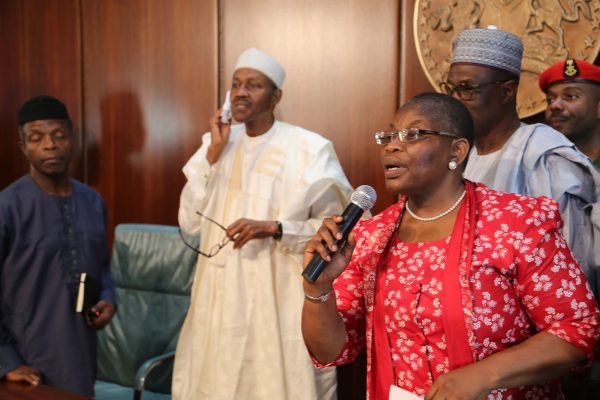President Muhammadu Buhari, has re-assured Nigerians that the rights of women and girls will be protected, adding that there will be adequate female representation in governance.
President Buhari gave the assurance in Abuja while addressing the 2017 Women and Girls Summit organised by the National Centre for Women Development (NCWD) with the theme: “Power of the Adolescent Girl: Vision 2030.”
The President, who was represented by the Minister of Agriculture, Mr Audu Ogbe, said to achieve the desired change, resources must be mobilised through reduction of wasteful expenditure and zero tolerance for corruption.
He reiterated that his administration would continue to accelerate the revamping of the economy with agriculture, manufacturing, mining and others sharing centre stage.
“As a matter of deliberate policy, my administration will ensure that the rights of women and the girl-child, as guaranteed by the Nigerian Constitution, are fully protected.
“I want to restate that women will be adequately represented in government under my administration.
“ We will also provide greater opportunities for education of women, job creation and economic empowerment.
“We have also put in place facilities that will make women farmers access credit at one digit rate, because women have the best record of loan repayment of 90 per cent compared to men at 60 per cent.
“We know rural women suffer terribly and arrangements have been made to make it possible for rural women to have access to life against the challenges that hamper their rights to life,’’ he said.
The Wife of the President, Mrs Aisha Buhari, who was represented by the wife of the Vice President, Mrs Dolapo Osibanjo, emphasised the need for additional hands in the campaign towards inclusive governance.
She called on stakeholders to come up with strategies and programmes to propel the notion of the girl-child in the country as well as the elimination of gender-based violence.
Earlier, the Director-General of NCWD, Mrs Mary Ekpere-Eta, said the summit was expected to draw attention of policy makers to the critical issues affecting women and girls, for high level discourse and strategic intervention.
“The day is aimed at calling for more opportunities for girls and to raise awareness on different forms of discrimination faced by the girl-child based on their gender,” she said.

